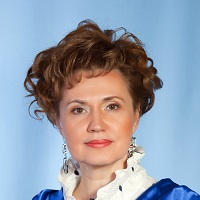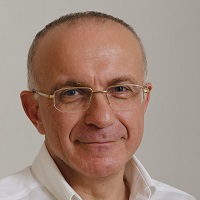- A
- A
- A
- ABC
- ABC
- ABC
- А
- А
- А
- А
- А
Year in Review. Part Two
How will the academic community remember the vibrant university life of our students? What important events have taken place at the HSE University campus in Perm? Where did the first virtual assistant, Yura Vyshkin, start working? Okna Rosta continues summing up the results of the 2018/19 academic year.
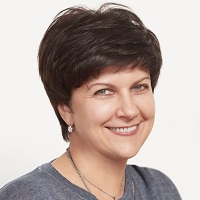
Valeria Kasamara, HSE University Vice Rector
HSE University life is so wide-ranging that it’s hard to choose the most important things. For example, Alexander Lukin, a physics student, won the Science Battles finals. Thus, HSE University has proven that it can be renamed from Higher School of Economics to Higher School of Everything.
For me and my research team, a very important event was the opening of the Institute of Applied Political Studies, based on the Laboratory of Political Studies, which was created by a proactive student team back in 2008. The work of the laboratory, and today, the institute, gives us a good example of the fact that academic careers at HSE University have no age restrictions and no borders; they are not afraid of distances and 25-hour days. Just a few weeks ago, a team of 19-year-old interns from our Institute spoke at a prestigious conference in Hong Kong about the results of their project, and impressed the international peers not only with their research results, but also with their age: ‘How was your academic supervisor brave enough to entrust this to you and send you here alone?’
HSE University’s main achievement is the vibrant academic life of its students. The Science Republic project started only recently and is already bringing together over 100 students interested in research. The Centre Student Research Paper Competition
Galina Volodina, Director of the HSE University in Perm
I would like to mention several important events in the past academic year. The autumn semester started with iCARE, International Conference on Applied Research in Economics, a leading international academic conference in this field. In the year of the 20th anniversary of HSE University in Perm, this conference was held for the sixth time, bringing together leading international researchers in economics, as well as young scholars and doctoral students.
September was marked by the visits of three foreign experts: Nada Matta, Professor at the University of Technologies of Troyes (France), I-Ching Lee, Professor at the National Taiwan University, and James Thomas, author of many books on teaching methods and an expert in teaching in foreign languages.
In 2019, the HSE University campus in Perm launched a new master’s programme, Experience Economy. In March, a national research and practical conference with the same name took place, which attracted over 130 participants from ten Russian regions. The conference was broadcast online, and proved to be very popular among long-distance participants.
This year, HSE University in Perm gained more partners: we signed cooperation agreements with such companies as Galileosky, INSYTE Electronics and SIBUR-Khimprom, in order to carry out joint research and provide students with relevant competencies in IT.
HSE University - Perm is a strong research university. Our undergraduate and master’s programmes are recognized not only on the Perm regional market, but in other regions as well. We have successfully integrated student projects into our education process. In 2014, HSE University - Perm founded the International Laboratory of Intangible-driven Economy with a team of researchers from different countries who have organized research based on networking. HSE University in Perm has formed one of the strongest research and teaching teams in the region. 100% of researchers in the campus comply with our publication activity assessment criteria!
The campus in Perm is also facing some challenges. Despite the fact that our research teams and individual researchers carry out fundamental research and get grants from the Russian Science Fund and the Russian Fundamental Research Fund, we haven’t as yet managed to achieve substantial growth in the volume of R&D and consulting projects. This task, on one hand, requires the formation of a pool of applied researcher and experts, and on the other hand, mastering new fields, such as digitalization of business and public administration, as well as the development of intellectual systems.
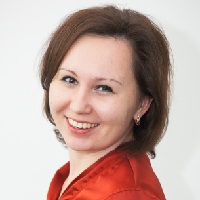
Aliya Ermakova, Director for Legal Affairs
The year has been turbulent, and there have been a lot of significant events, of which I’m going to mention just a few: the Rector’s reappointment, HSE staff conference, formation of the new Academic Council, settlement of dispute with a big contractor, and a precedent-setting trial with the Ministry of Education and Science, which we won. This year, we also celebrated the tenth anniversary of our Legal Office, and hired Yura Vyshkin, our virtual assistant.
We believe that the main achievement of the Legal Office was, probably, the changes made to the structure of our work and relations with departments. We still have to solve a lot of typical one-time tasks or ‘put out local fires’, when we learn about problems as they arise. But this year, the Legal Office had more requests for long-term partner legal support for university’s important project. Our expertise enhances such projects and makes many things implementable. It’s great to be part of so many good things happening at HSE University. For us, it is a sign of recognition and an indicator that we are moving in the right direction.
We have faced the most serious challenges in those areas where we haven’t achieved our goals yet. Unfortunately, we failed to launch the contract constructor this year – a service that is supposed to become another good legal assistant for the university staff and simplify the procedures of contract creation and approval. We haven’t yet achieved fast outcomes in terms of law-making activities we are involved in order to provide a comfortable legal environment for the university’s operations. And, of course, the biggest challenge we always face is limited time. That’s why we are still waiting for our research departments to invent a time extension machine. And I promise you, we will be able to get a patent for it!
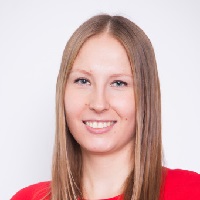
Olga Kostrikina, Head of the Contract Unit
HSE University is like the Universe – it is constantly expanding. However, this shouldn’t be a surprise: ‘university’ and ‘universe’ are cognates. In the past academic year, HSE University has expanded the list of faculties in natural science, creating faculties of chemistry, biology, and geography. These faculties will cooperate with the relevant institutes of the Russian Academy of Sciences. This way, students will get both theoretical and practical training. Previously, one could only dream of such education.
In terms of the events I remember the most, it was our active work on legal support for natural science faculties, namely the Faculty of Chemistry and the Faculty of Biology. The way the education model is set up at these faculties, with equipment being provided by RAS institutes, required careful legal support in terms of formalizing the relationship between our university and these institutions. The Legal Office had to find and suggest unconventional contract models, which would consider the existing strict regulatory requirements, and at the same time be flexible and convenient enough to support the interaction between HSE University and the institutes. We negotiated with institutes, several ministries (the institute’s shareholders, Ministry of Education and Science and Rosimushchestvo), worked together with the colleagues from the financial office, and, of course, with the faculties’ staff. This has been a real example of HSE teamwork, with HSE University, RAS institutes and governmental bodies working in one team.
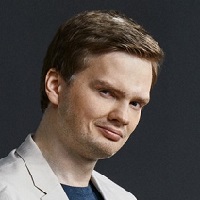
Dmitry Dagaev, Deputy Vice Rector, Head of the Laboratory of Sports Studies
For me, a milestone event was the First International Economics Olympiad for High School Students. Prior to 2018, there had been no such competition in this field, and HSE University decided to contribute to the rich Russian tradition of international high school student competitions. Taking into account that Economics is taught at schools not in all countries, and the curricula vary widely, 15 participant countries in the first year of the competition are a sure sign of success. The Second International Economics Olympiad for High School Students will take place from July 23 to August 1, 2019, in St. Petersburg. An important task for the Olympiad organizers in the near future will be to provide succession, without which the Olympiad can’t be a truly international event.
The Laboratory of Sports Studies, which was created as part of the Faculty of Economic Sciences in June 2018, has already started to achieve results. The Laboratory interns are actively involved in research projects and report their outcomes at international conferences. Both 2019 graduates of the laboratory, Garik Vardanyan and Maxim Vavulin, will continue their studies on strong master’s programmes, University of California, Berkeley, and Bocconi University, respectively. It’s important for us to help our students understand that research is a great opportunity to investigate the world and realize your ideas about how to make it a better place. Even if you are not going to proceed to academia, research skills are certainly useful in almost every job. We pay particular attention to applied research. For example, in June 2019, the Laboratory of Sports Studies helped create the match schedule for the Russian Premier Football League.
HSE University is continuing its transformation in a classical university. The creation of the three new faculties, Faculty of Chemistry, Faculty of Biology and Biotechnology, and Faculty of
Isak Froumin


